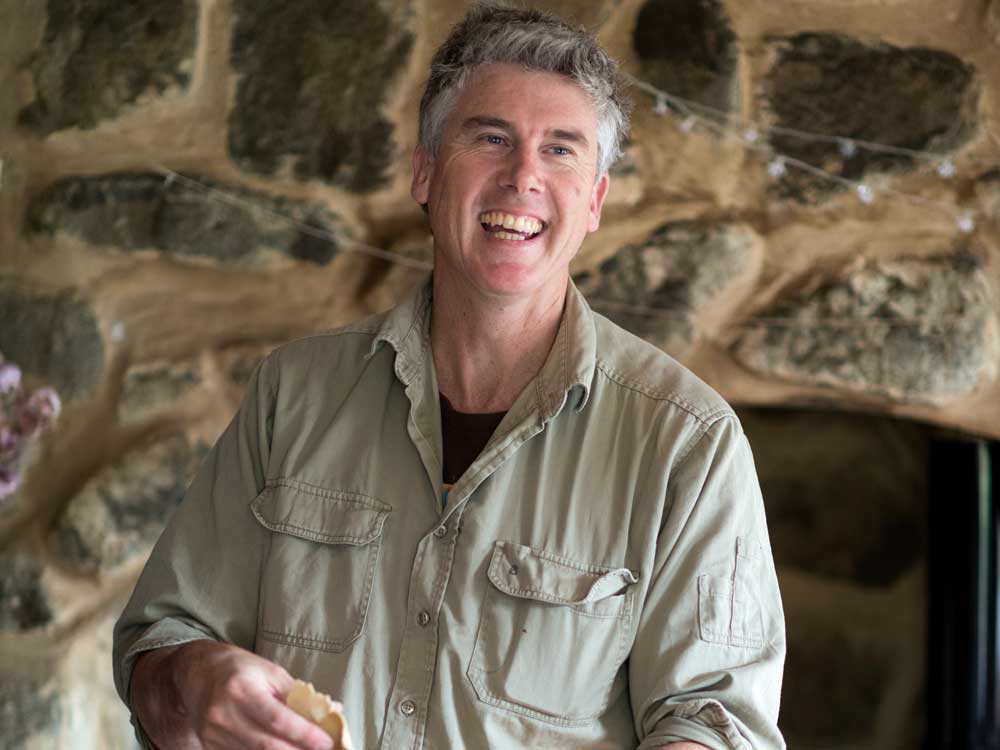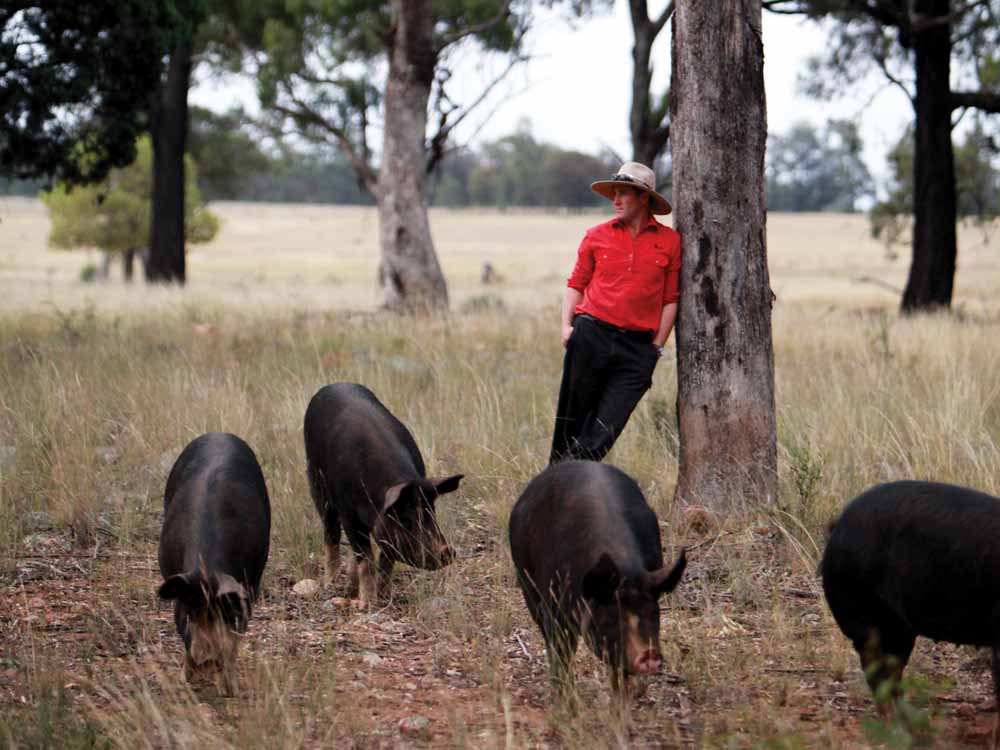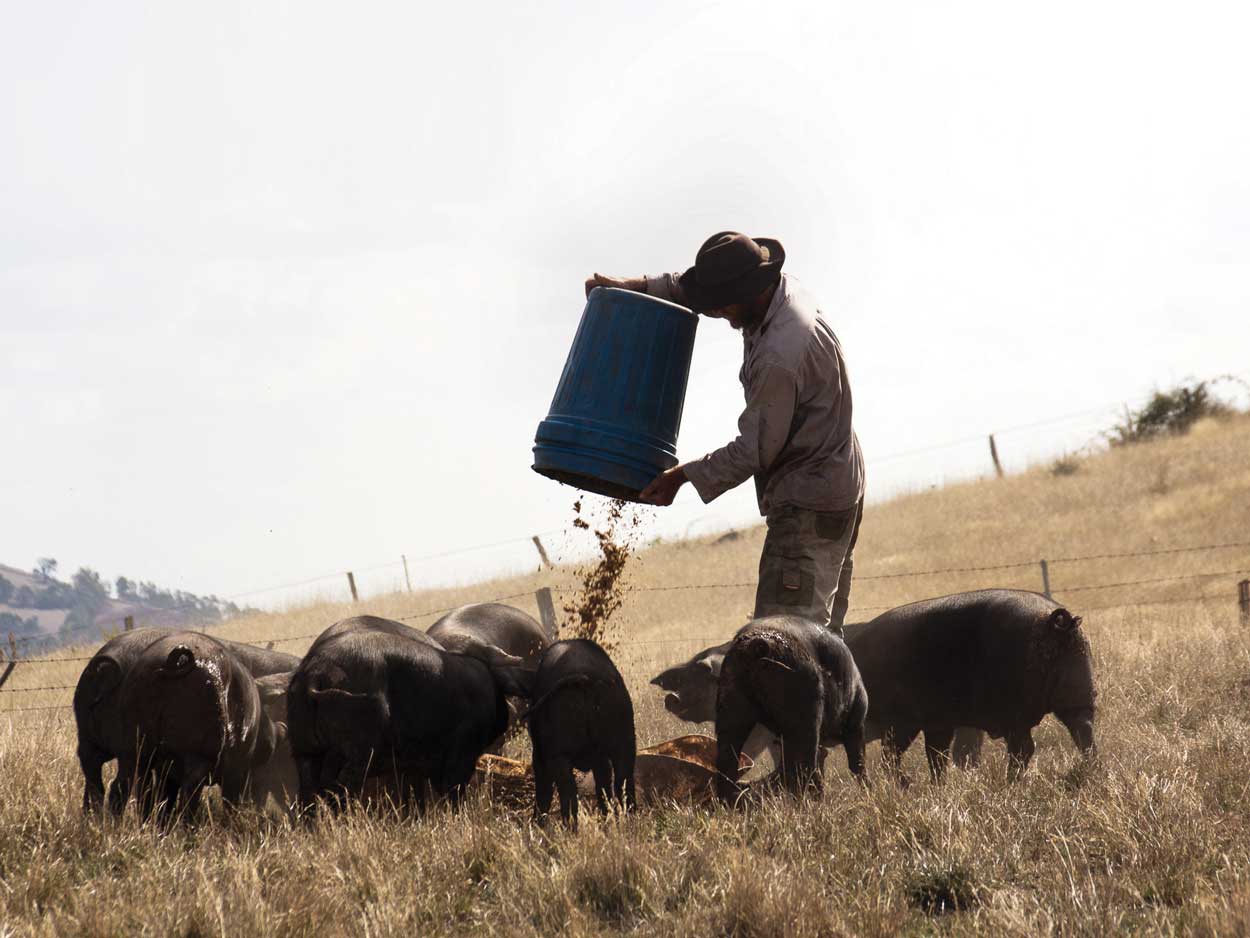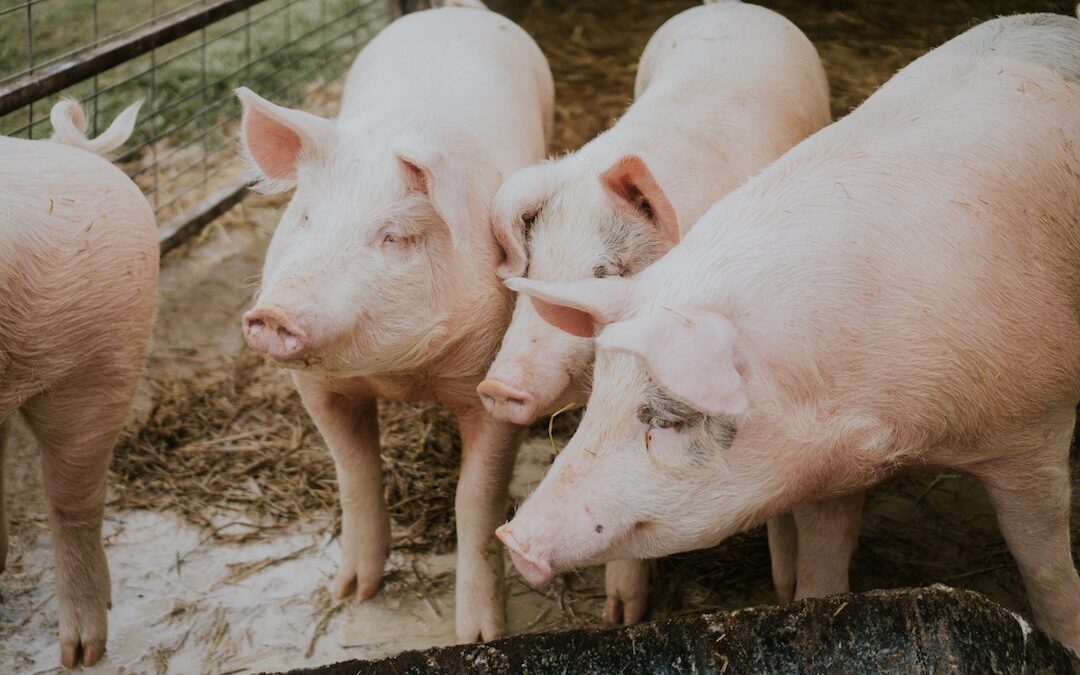We delve into the pork revolution and see what’s happening at the forefront of this burgeoning industry.
“Get some pork on your fork” and “Pork, the other white meat” are two memorable taglines from industry marketing campaigns over the decades, but today there’s a quiet revolution going on in the field of Australian pork, as farmers are moving towards more ethical pork production.
On average, Australians eat 27.9 kilograms of pork per year – it became our second favourite meat after chicken, superseding beef, just a few years ago. Some of this increase in consumption has been driven by new trends such as the demand for gourmet bacon and prosciutto, but there are also crazes like the ketogenic diet which has made crackling popular as a snack food.
According to former Australian Pork Limited CEO Andrew Spencer, “Fresh pork has been increasing in popularity over the last few years. Trimmed pork is low in fat and has more iron than chicken but not as much as beef and lamb. Then there is the versatility of pork – a lot of chefs have picked up on it and realised that a lot of new things can be presented from pork cuts.”
While only comprising around 10 per cent of total production, a growing trend is the rise of (often small scale) ethical pork production – raising pigs outdoors where they can exhibit the full range of animal behaviours that come naturally to them. Breeds such as the Large White and Landrace have over the years become adapted to being raised intensively indoors and tend to do poorly in a free-range situation. This has led to a small but growing resurgence in traditional breeds such as the English Large Black, Berkshire, Wessex Saddleback and Tamworth that are well adapted to being raised outdoors.

The most famous of the new breed of artisanal free-rangers is former Sydney Morning Herald food critic turned farmer Matthew Evans, star of long-running SBS series Gourmet Farmer. At the smaller end of the scale, Evans has three rare Wessex Saddleback sows – Evita, Jackie and Audrey – and one boar, Barry, which turn off around 50 free-range pigs per year. Not all of Evans’ 70-acre property, Fat Pig Farm, is suitable for raising pigs, but only one tenth of it at any one time will have the animals on it.
“We put the pigs into the paddock and move them when they need fresh grass,” Evans says, “so they can exhibit natural species-specific behaviour. Ducks get to swim in their duck pond, pigs get to root up the soil, dig, forage and nest, etc.”
While Evans only sells his pork through the on-farm restaurant, he was an early adopter of value-adding practices. “[As a] small scale producer, [we] had to do a high-value-add product. Can’t sell pigs at market or to butcher for the same price as pork rillette or our all-meat sausage – a sausage with just meat, no fillers, no starch, no sachets of flavour,” he explains. “The best compliment I ever got was from a guy selling potatoes: your sausages are too meaty.”
Tammi Jonas, of Jonai Farms, is an artisanal producer also helping to preserve a rare heritage breed, the English Large Black. “We have two boars and 12 sows on 69 acres of volcanic soil country, just outside Daylesford in Victoria, which we use to produce a whole range of fresh pork and small goods products as well as bone broth,” says Jonas.
When Jonai Farms had difficulties with getting the farm’s produce butchered to specification, Jonas apprenticed to a local butcher and crowdfunded the money needed to build a boning room on farm. The result was extremely successful. About 10 per cent of Jonai Farms’ production was sold through the farmgate shop but “the rest was sold through a Community Supported Agriculture (CSA) program. We had 85 people signed up for a year to get between three and 10 kilograms of our product. Customers were spread throughout regional Victoria and Melbourne, where there was 75 people on a 20-year waiting list.”

If there is one common theme among free-range pig producers, besides their ethical approach to animal raising, it would be their devotion to the land. If kept on the same patch of ground for too long, pigs can be incredibly destructive. That’s why Evans and Jonas practice planned grazing – as do Dubbo-based free-range pig farmers Michael and Alex Hicks of Extraordinary Pork.
Michael studied Holistic Management™ at university and his wife, Alex, grew up on a holistically managed family farm near Orange. So it’s no surprise that when they decided to purchase 350 acres near Dubbo they were focused on regenerating the landscape, which included areas of sodic soils. Holistic Management™ is a decision-making framework developed by Zimbabwean biologist, politician and soldier Allan Savory. It enables landholders to make balanced decisions that are socially, financially and environmentally sound in both the short and the long term.
The Hickses run 16 rare Berkshire sows and an even rarer Duroc boar on 120 of their 350 acres, and sell their meat through several outlets in Sydney and Central West New South Wales as well as their own CSA.

According to Michael, “We focus on regenerating the landscape while providing the best life possible for the animals and a good life for ourselves. For us, those morals are exceptionally important. It is all about the animals, which means if we need to move the pigs today to not damage our land, then they get moved today.
“We focus on doing this very, very well, and in return the animal rewards you. Animals act out, and we just have to listen and observe because they do what they do for a reason. For example, piglets react to how the sow is behaving. If the sow is upset and agitated, then the piglets are, too. If you make the sow as happy as she can be, it translates into the paddock.”
While still a small part of the overall market, “it’s a really exciting thing to see all these producers bobbing up at farmers’ markets, focused on ethically raising free-range pigs who are free to dig and forage and nest,” says Evans. “Who would have thought nature would get it so right?”
To learn more about the future of other Australian industries, click here.

